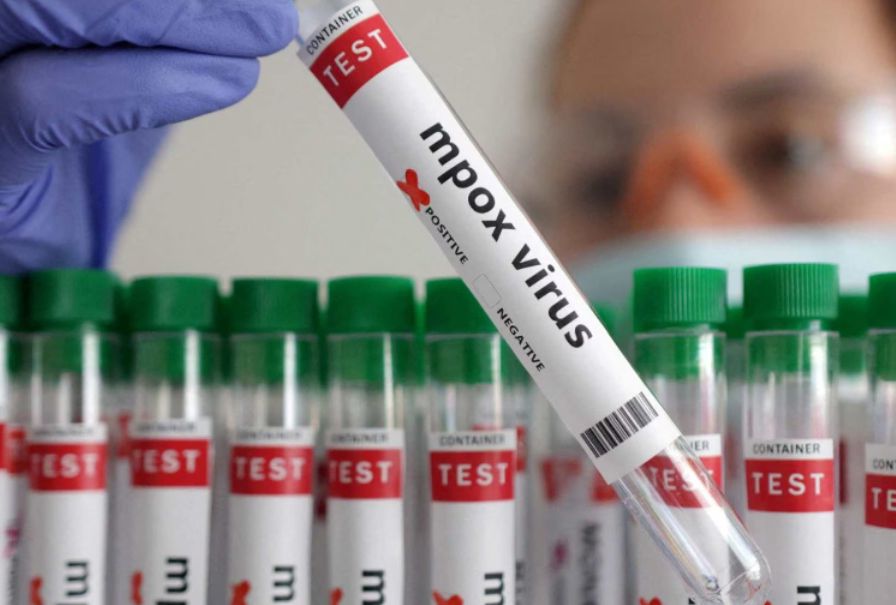Mpox, previously known as monkeypox, is a viral disease that has garnered global attention due to its resemblance to smallpox, causing skin lesions, fever, and other symptoms. As more cases have been reported in different parts of the world, the search for effective treatments has intensified. One treatment that has been discussed is Ivermectin, a medication widely used for parasitic infections. But is Ivermectin effective for Mpox? Let’s dive into the details to evaluate its potential role in treating this viral disease.
Understanding Mpox
Mpox is caused by the monkeypox virus, a member of the Orthopoxvirus genus. It primarily spreads through close contact with an infected person, animal, or contaminated material. The symptoms of Mpox include fever, rash, swollen lymph nodes, and, in severe cases, respiratory distress or eye complications.
Though similar to smallpox, Mpox is generally milder, with most cases being self-limiting, meaning the infection resolves without extensive medical intervention. However, in vulnerable populations such as children, immunocompromised individuals, or those with comorbid conditions, Mpox can pose a more significant threat, requiring proper management.
The Use of Ivermectin in Medicine
Ivermectin has been widely used since the 1980s to treat parasitic infections, including onchocerciasis (river blindness) and strongyloidiasis. It works by paralyzing and killing parasites, making it a life-saving treatment in regions where parasitic infections are prevalent. In recent years, Ivermectin has gained attention beyond its antiparasitic properties.
During the COVID-19 pandemic, Ivermectin was touted as a potential treatment for the virus, despite a lack of strong clinical evidence. Similarly, its use for Mpox has also been debated, prompting experts to evaluate the drug’s potential antiviral properties. While the mechanisms of Ivermectin’s action against viruses are not fully understood, its potential for broad-spectrum antiviral activity has piqued interest.
How Does Ivermectin Work Against Viruses?
While primarily known for treating parasites, Ivermectin has shown some promise in laboratory settings as an antiviral agent. Researchers have discovered that Ivermectin inhibits the replication of certain viruses by interfering with the proteins required for viral replication. This characteristic is why it has been studied for use in diseases such as Zika virus, Dengue, and COVID-19.
However, the in-vitro (test tube) efficacy of Ivermectin against viruses has not always translated into clinical effectiveness in humans. The doses required to inhibit viral replication in laboratory settings are often much higher than those considered safe for human consumption. This raises questions about its potential use for treating viral infections like Mpox.
Clinical Trials and Research for Mpox
To date, there is limited clinical evidence supporting the use of Ivermectin for Mpox specifically. Most of the information surrounding its antiviral properties comes from preliminary research on other viruses. Unfortunately, there is not yet substantial data that clearly demonstrates that Ivermectin can effectively treat Mpox.
Moreover, the World Health Organization (WHO) and the Centers for Disease Control and Prevention (CDC) have not endorsed Ivermectin as a recommended treatment for Mpox. Instead, antiviral treatments like Tecovirimat (TPOXX) have been explored, with some success in managing severe Mpox cases.
That being said, Ivermectin 12mg and other formulations like Iverheal 6 mg have gained attention, with some individuals advocating their use despite a lack of solid clinical backing. For individuals considering these options, it’s essential to consult healthcare professionals and rely on established guidelines for treatment.
Limitations of Ivermectin for Viral Infections
One of the major concerns regarding Ivermectin for treating Mpox or any viral infection is its dosing. The antiviral effects observed in laboratory studies required higher concentrations of the drug than are usually prescribed for parasitic infections. In humans, such high doses could potentially lead to toxicity and adverse effects.
Ivermectin’s primary use as an antiparasitic does not guarantee efficacy against viral pathogens like the monkeypox virus. Furthermore, using medications off-label (for conditions not approved by regulatory agencies) without sufficient evidence can be risky and may detract from seeking proven treatments.
Possible Side Effects of Ivermectin
When taken within the recommended dosage for parasitic infections, Ivermectin is generally well-tolerated. However, higher doses or inappropriate use can lead to side effects such as:
– Nausea and vomiting
– Dizziness
– Rash or itching
– Abnormal liver function tests
– Seizures (in extreme cases)
For individuals with pre-existing liver conditions or those taking medications that interact with Ivermectin, the risk of side effects increases. Consulting with a healthcare provider is essential before using Ivermectin for any unapproved conditions like Mpox.
Alternatives to Ivermectin for Mpox
While Ivermectin has received attention, other treatments may be more suitable for managing Mpox. Currently, no specific antiviral has been universally approved to treat Mpox, though antivirals like Tecovirimat (TPOXX) are being investigated.
For symptomatic relief, pain medications, antihistamines, and fever reducers are typically recommended. In severe cases, hospitalization may be required to manage complications such as secondary bacterial infections or respiratory distress.
The Bottom Line: Is Ivermectin Good for Mpox?
As of now, there is insufficient evidence to support the use of Ivermectin for Mpox. While it has demonstrated some antiviral activity in laboratory settings, this does not guarantee its effectiveness in humans for treating Mpox. The doses required to potentially inhibit the monkeypox virus may be higher than what is safe for human consumption, and there are still no large-scale clinical trials proving its efficacy.
If you or someone you know is affected by Mpox, it is crucial to seek professional medical advice and follow the recommended treatment protocols. Using unapproved treatments like Ivermectin, especially without clear evidence, may do more harm than good.
The best course of action is to remain informed, cautious, and consult healthcare providers for the latest treatment recommendations.




